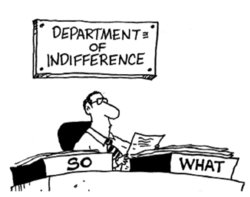Itunes is going away??
- Thread starter TJS
- Start date
You are using an out of date browser. It may not display this or other websites correctly.
You should upgrade or use an alternative browser.
You should upgrade or use an alternative browser.
If you are converting MP4/MP3 or other lossy to WAV, then you still 'lost' something. As the original data was not there to begin with, the conversion can't create something that's not there.Maybe i just had a bad run with it, though its doubtful as I am very picky regarding audio quality. I purchased over 500 songs over the years and always found the audio quality pretty poor, especially in the upper frequency spectrum. Maybe they are not using good "ripping" software to convert to the various formats.Or it could be their source material, though i doubt it as i have ended up buying the CD and noticed the lossiness of the itunes format.
Everytime you convert from one format to another you will lose something in the conversion ex MP4 to MP3 etc. Unless converting to WAV which is lossless.
These days i rip everything in WAV
No it's not - it's a browser - and was part of the reason for the MS 'monopoly' issues. Because it's MS own product, I can somewhat understand why it's 'everywhere' on the system - but then what does this say about MS products on a non-Windows machine? It's a product and as such, should follow the same 'rules' all other products do. Because it's so intertwined is why there are problems with other products and vendors. I don't think there are many apps that don't get inserted into the Registry but I do know that not many of them come out of it.Yep... McAfee and Norton are BAD too. I’d NEVER put either of those on one of my PC’s either.
Internet Explorer???... Kind of a different animal. It’s a little more understandable why it’s so tightly intertwined with Windows.
McAfee, Norton, Adobe and plenty of others are so deep in the registry that it's almost impossible to remove all traces. This is one of the reasons that it is highly suggested to image your system after its been built and go back to that image (or fresh build) every 3 years - clean registry, etc. Mac - put it in the trash can, empty trash can, done.
FWIW, poorly written large programs, such as products from MS and Adobe may also be a little more difficult to remove from a Mac as well - but it's not because of registry type issues - it's because of data paths that may have been created during install and the system failed to remove.
Last edited:
No need to replicate. The Algoriddm suite of products can read both local owned files AND Spotify songs and play either, so one could use Spotify to augment going forward. Just like there are apps (Traktor, Serato, VDJ,+) that can use SoundCloud Go for similar purposes. I expect most of the DJ apps will recognize 1 or more streaming services, just like some integrate with karaoke services and other music services like PulseLocker/Beatport.That sounds like a PIA. If I didn't already OWN (purchased) 24,000 tracks, I'd be tempted to go to Spotify.
But it's be a major time consuming effort to replicate as much of my library as possible....
See... there’s the rub.[emoji1]... I have iTunes phobia, so I try never to use it if at all possible. I only have it installed on one of my many computers because it’s like an insidious virus, and worms it’s way too deeply into your computer’s registry and inner workings.[emoji1]
That's funny.
No it's not - it's a browser - and was part of the reason for the MS 'monopoly' issues. Because it's MS own product, I can somewhat understand why it's 'everywhere' on the system...
Back in the day, there were two things happening... Microsoft was out to DOMINATE the software marketplace. You can hate them for that, but honestly, shouldn’t that be the objective of every business???... I know if I invest in a business, I want them to have that same attitude.
Microsoft was forced to uncouple Internet Explorer from the OS, because they were giving it away for free, but that’s the second thing. Microsoft was banking on everything (all software) being browser-based, so they built IE into the OS (Windows) and used it to display all manner of Windows screens (even though it was not always apparent). When they were forced to uncouple IE from the OS, they had to make it so it could be uninstalled... Well if IE was uninstalled, many screens and functions would no longer work, so that was not really an option. What they did was essentially allow you to remove the ability to RUN IE as a browser, but much of the code was still left behind in order to support the those required functions.
They still put Netscape out of business, but now IE is essentially dead too. They were mostly right about everything being browser-based, but for some reason decided not to keep IE competitive with other browsers. Edge is a bust, and will eventually be replaced with a version based on the Chromium open-source model. I suspect, though, that there’s still a lot of IE code in Windows 10.
The web is browser based. Not much else is.
Not so Grasshopper... Most of the major ERP and HRIS systems are browser based. They don’t have to be exposed to the Web, but can be. There’s tons of other applications browser-based applications... Office 365, Google’s office productivity suite among others.
I was the VP of development at an ERP software company, and we built the first Windows based client-server ERP System for the market we served. We used browser based tools to build the reporting system to interface with the mainframe 4GL reporting tools. It’s very common to use the browser as a GUI, while hiding disguising the look of it so it doesn’t actually look like a browser.
Those apps are HTTP based .. not browser based. A browser is just another HTTP based app.
Actually... the Microsoft Developer SDK included calls to IE and you could use the ability to scale, print, save, etc. from IE without having to write any code. What appears to be a Window is actually an instance of IE.
Sent from my iPhone using Tapatalk
If you convert to WAV , their is no loss.If you are converting MP4/MP3 or other lossy to WAV, then you still 'lost' something. As the original data was not there to begin with, the conversion can't create something that's not there.
WAV does not use compression.
BUT .. the MP3/MP4 files ALREADY LOST information when created, so converting to .wav doesn't buy you anything. It's only when the source material (i.e. a CD) is of a higher resolution than the "norm" (mp3) that it might make sense to rip to .wav (or FLAC or AIFF .. both lossless as well).If you convert to WAV , their is no loss.
WAV does not use compression.
Yes i knew that..I sometimes convert to WAV from mp3 because i want to edit the file or maybe because my Denon DN HD2500 only recognizes 44KHz not 48KHz. Occasionally i get the odd mp3 file that is in 48KHz
.Its just that some people think by converting say a 190bit rate MP3 file to a 320bit rate mp3 file they are gaining quality. Instead they are losing quality as the file is compressed again through conversion process.
.Its just that some people think by converting say a 190bit rate MP3 file to a 320bit rate mp3 file they are gaining quality. Instead they are losing quality as the file is compressed again through conversion process.
While I understand your logic, converting a 190k mp3 (which already lost data) to a 320 - certainly doesn't gain quality, but it doesn't lose any either. It's already compressed - it doesn't re-compress an already compressed file.
Ahh you are wrong in thinking that because by converting it to 320 you are compressing it again thereby losing some quality of the original 190k fike
Considering the original is of a lesser quality, you can't lose more. You are thinking that it's recompressing - but it's not. You can't compress a compressed file. You also can't lose what's not there to lose.Ahh you are wrong in thinking that because by converting it to 320 you are compressing it again thereby losing some quality of the original 190k fike
REALITY IS:
The lower bit rate files are smaller because the missing information is gone and gone FOREVER. You can’t just re-output them at 320kbps. The new file will be larger, but won’t contain a single byte of musical information more than the lower bit rate version. You will only obtain bigger file with zero/zilch/no un poco/NO increase in audio quality. IOW, a totally pointless exercise.
RULE OF THUMB: Obtain the the highest quality files you can to start with, and don’t expect to ever be able to “uncompress” audio that has been compressed...it’s impossible to reverse the damage done.
The lower bit rate files are smaller because the missing information is gone and gone FOREVER. You can’t just re-output them at 320kbps. The new file will be larger, but won’t contain a single byte of musical information more than the lower bit rate version. You will only obtain bigger file with zero/zilch/no un poco/NO increase in audio quality. IOW, a totally pointless exercise.
RULE OF THUMB: Obtain the the highest quality files you can to start with, and don’t expect to ever be able to “uncompress” audio that has been compressed...it’s impossible to reverse the damage done.
Considering the original is of a lesser quality, you can't lose more. You are thinking that it's recompressing - but it's not. You can't compress a compressed file. You also can't lose what's not there to lose.
Of course you are re- compressing the file again so you will lose something. Every-time you run the compression to convert it, even if you are compressing it at the full 320 bit rate.
So if you have an original mp3 file at say 128bit rate and you convert it to 320, you will in effect lose something because you are compressing it again.
So just leave the file alone at its original lower bit rate!!



 That's my source of choice...320 cbr...
That's my source of choice...320 cbr...